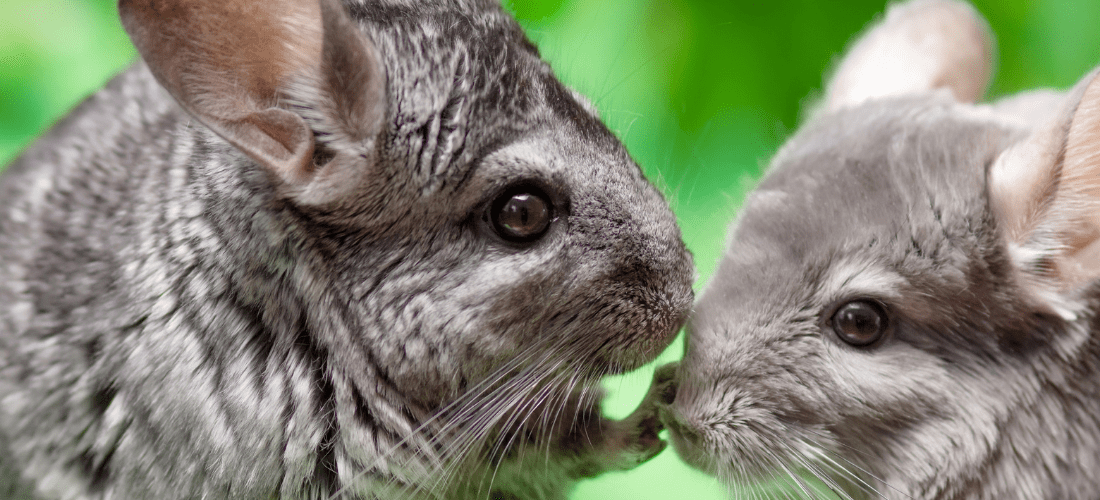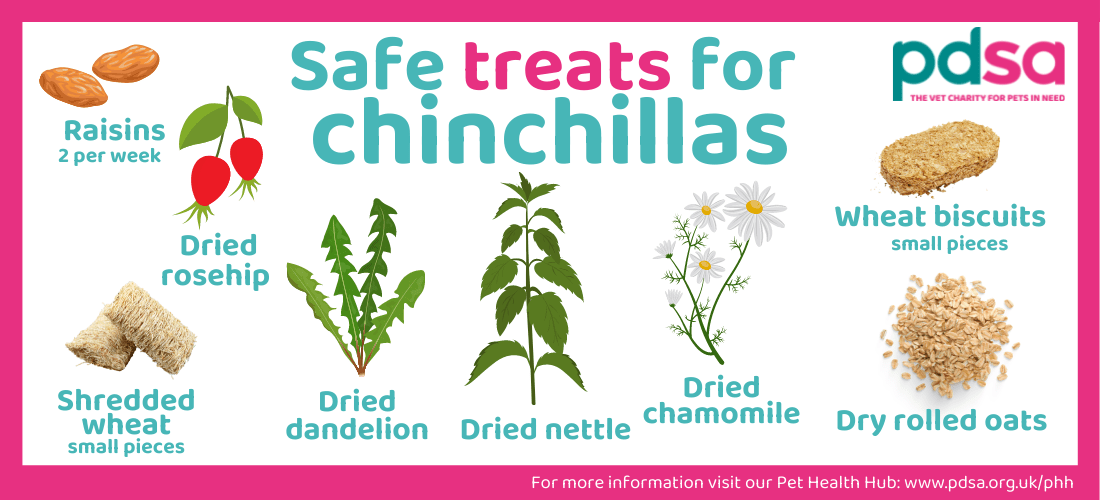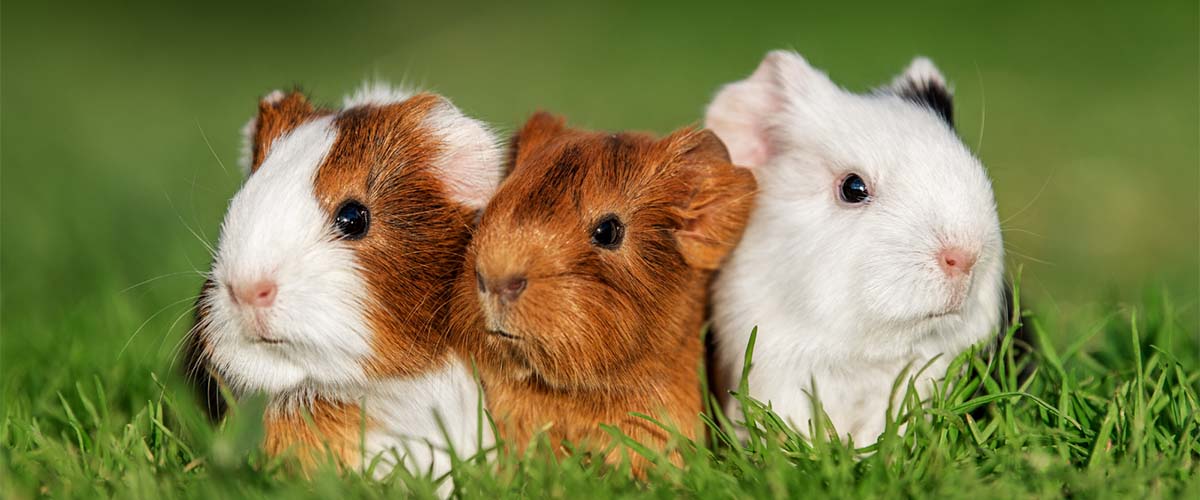The best diet for your chinchillas
Overview
- Chinchillas originate from the Andes Mountains in South America, so the best diet for them reflects the food available in this dry, barren region.
- The right diet will keep your chinchillas’ teeth the right length, their guts healthy, and help them live a happy, healthy life.
- Because of their basic dietary requirements, shop-bought treats for chinchillas often aren’t suitable or healthy.
What do chinchillas eat?

Hay
- Chinchillas need a constant supply of hay, so it should be the main part of their diet.
- Each morning, remove any that they’ve left from the day before, and provide a fresh pile.
- A good quality, dust extracted timothy or meadow hay is perfect.
- Avoid alfalfa hay unless your chinchilla is pregnant, feeding babies or still growing (read more below).
Chinchilla pellets
- Alongside hay, you will need to offer your chinchilla 1-2 tablespoons of high quality chinchilla pellets per day.
- Don’t over feed pellets because your chinchilla is likely to choose them over hay, which might lead to obesity and dental problems.
- Avoid mixed seed/muesli style diets, as they are likely to pick out their favourite bits and get an unbalanced diet.
Water
- Fresh, clean water should be available at all times from a sipper bottle.
- Water bowls aren’t ideal because they quickly become soiled and your chinchilla could fall into it/tip it over and get wet.
Treats
- Treats aren’t an essential part of your chinchilla’s diet, but are a great way to get them foraging – read more below.
Treats for your chinchillas
Chinchillas have a simple, dry diet in the wild, so treats should be kept to a minimum and ideally dried to avoid tummy upsets – anything containing too much moisture has the potential to cause loose stools. Most shop-bought treats available for chinchillas aren’t suitable, so our vets suggest the following alternatives:
- Traditional rolled oats
- A small piece of wheat biscuit (5p piece size)
- A small piece of shredded wheat (5p piece size)
- Grass pellets (suitable for chinchillas)
- Raisins (no more than two per week – not suitable for young chinchillas or those with sensitive tummies)
- Dried dandelions
- Dried nettles
- Dried Chamomile flowers
- Rosehips (one piece as an occasional treat)

Chinchillas love to forage, so it’s extra fun for them if you hide treats in their hay to encourage this behaviour.
Why is the correct diet important for my chinchillas?
Chinchillas originate from the Andes Mountain range in Northern Chile. Their environment is dry and barren, meaning they spend a lot of their time foraging because food is sparse. Their natural diet consists of leaves, twigs and a variety of grasses, so it’s important we feed our pet chinchillas a similar diet to keep their teeth and guts healthy. Chinchillas’ teeth grow continuously throughout their life, so they need a high fibre diet that requires lots of chewing to keep them worn down. Hay is perfect for this and just as importantly keeps the guts moving and their digestive system healthy.
FAQs
- Can chinchillas eat apples and carrots?
- Can chinchillas eat grapes and bananas?
- What human food can chinchillas eat?
- Why shouldn’t my chinchilla eat alfalfa hay?
- What do chinchillas eat in the wild?
- Do chinchillas have to eat their own poo?
Can chinchillas eat apples and carrots?
No, chinchillas naturally live on barren land where many vegetable and fruits can’t grow, so they are likely to get an upset tummy if they eat foods such as apples and carrots.
Can chinchillas eat grapes and bananas?
No, similar to apples and carrots, although your chinchillas will happily eat grapes and banana, they are very high in sugar so can cause an upset tummy – because of this, they are best avoided.
What human food can chinchillas eat?
Conveniently, some of the treats mentioned above, such as rolled oats (porridge oats), shredded wheat and wheat biscuits, are probably already in your cereal cupboard. Don’t be tempted to offer your chinchillas any other human food as it’s likely to be unsuitable.
Why shouldn’t my chinchilla eat alfalfa hay?
Alfalfa hay should only be fed to chinchillas who are pregnant, feeding babies, or still growing. This is because it’s much higher in protein and calcium which can cause urine crystals in chinchillas that don’t require the extra nutrients. Bladder crystals can cause pain, discomfort and sometimes even block the bladder.
What do chinchillas eat in the wild?
In their native home, chinchillas eat high fibre grasses, nibble on small shrubs and bushes and will forage for berries and herbs.
Do chinchillas have to eat their own poo?
Yes, this is important for their digestion. Eating their soft poos (caecotrophs), enables them to absorb additional vital nutrients that weren’t absorbed the first time they went through the gut.

